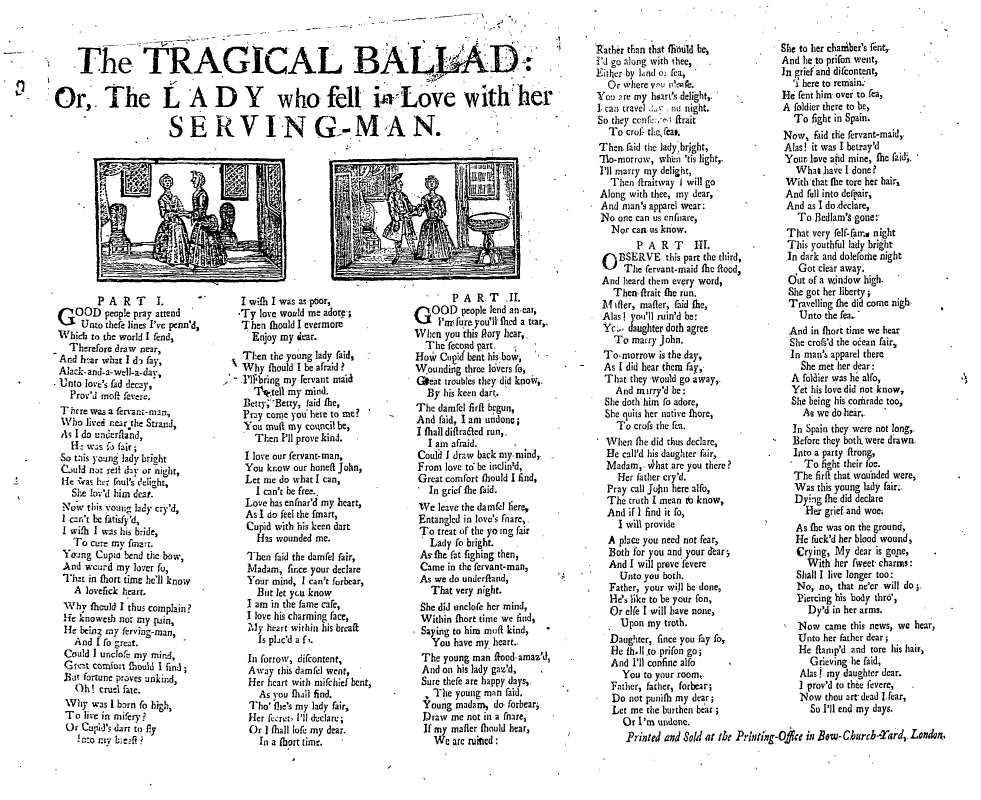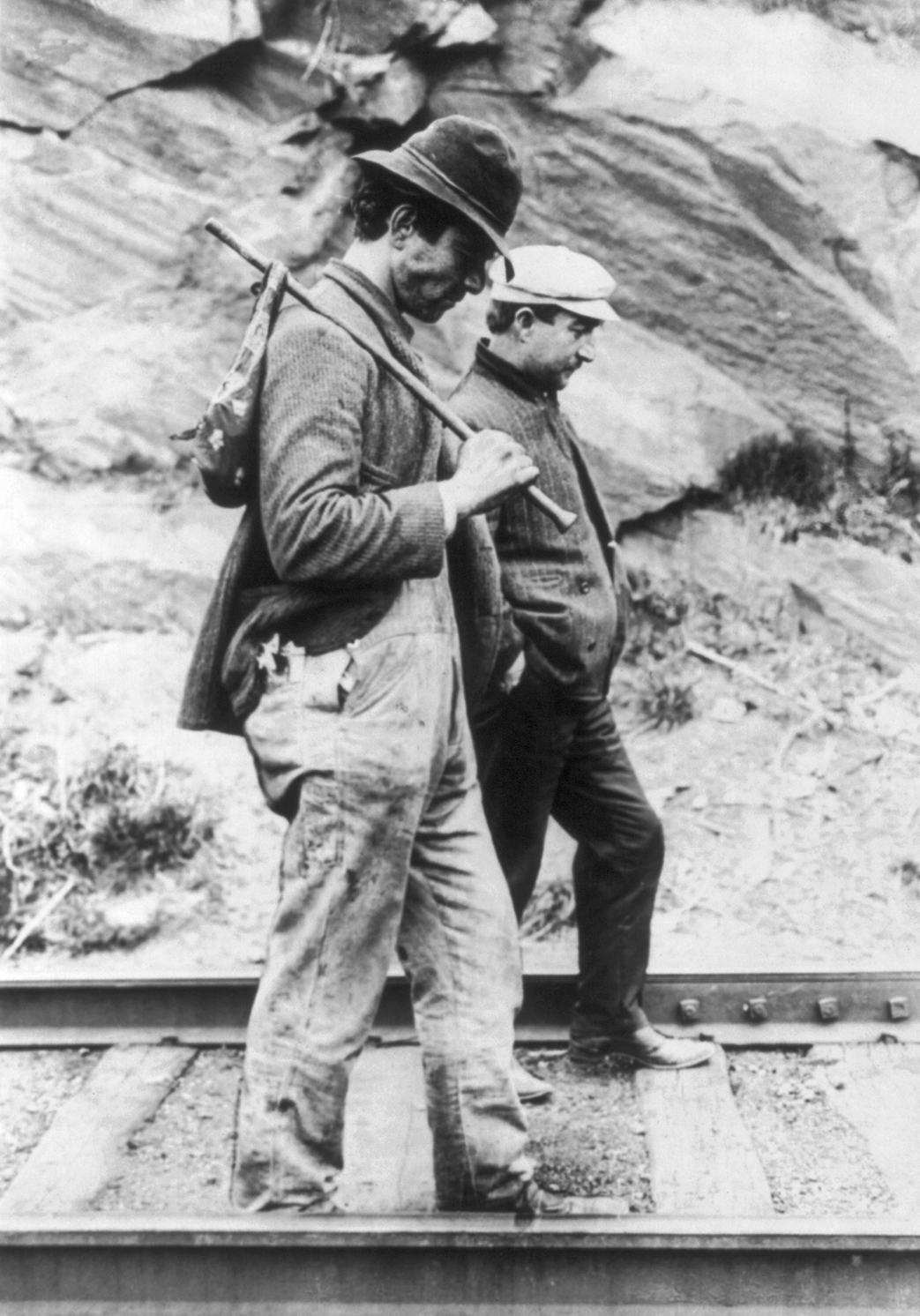|
An Invitation To Lubberland
"An Invitation to Lubberland" was a broadside ballad first printed in 1685. Many believe that it inspired the hobo ballad which formed the basis of the song ''Big Rock Candy Mountain'' recorded in 1928 by Harry McClintock. Lubberland is the Swedish name for Cockaigne Cockaigne or Cockayne () is a land of plenty in medieval myth, an imaginary place of extreme luxury and ease where physical comforts and pleasures are always immediately at hand and where the harshness of medieval peasant life does not exist. ..., land of plenty in medieval myth. Lyrics Sung to the tune of ''Billy and Molly'' or ''The Journey-man Shoemaker'' by Daniel Cooper. Notes ReferencesBeinecke Rare Book & Manuscript Library at Yale [...More Info...] [...Related Items...] OR: [Wikipedia] [Google] [Baidu] |
Broadside (music)
A broadside (also known as a broadsheet) is a single sheet of inexpensive paper printed on one side, often with a ballad, rhyme, news and sometimes with woodcut illustrations. They were one of the most common forms of printed material between the sixteenth and nineteenth centuries, particularly in Britain, Ireland and North America because they are easy to produce and are often associated with one of the most important forms of traditional music from these countries, the ballad. Development of broadsides Ballads developed out of minstrelsy from the fourteenth and fifteenth century. These were narrative poems that had combined with French courtly romances and Germanic legends that were popular at the King’s court, as well as in the halls of lords of the realm. By the seventeenth century, minstrelsy had evolved into ballads whose authors wrote on a variety of topics. The authors could then have their ballads printed and distributed. Printers used a single piece of paper known as ... [...More Info...] [...Related Items...] OR: [Wikipedia] [Google] [Baidu] |
Ballad
A ballad is a form of verse, often a narrative set to music. Ballads derive from the medieval French ''chanson balladée'' or ''ballade'', which were originally "dance songs". Ballads were particularly characteristic of the popular poetry and song of Britain and Ireland from the Late Middle Ages until the 19th century. They were widely used across Europe, and later in Australia, North Africa, North America and South America. Ballads are often 13 lines with an ABABBCBC form, consisting of couplets (two lines) of rhymed verse, each of 14 syllables. Another common form is ABAB or ABCB repeated, in alternating eight and six syllable lines. Many ballads were written and sold as single sheet broadsides. The form was often used by poets and composers from the 18th century onwards to produce lyrical ballads. In the later 19th century, the term took on the meaning of a slow form of popular love song and is often used for any love song, particularly the sentimental ballad of pop or roc ... [...More Info...] [...Related Items...] OR: [Wikipedia] [Google] [Baidu] |
Hobo
A hobo is a migrant worker in the United States. Hoboes, tramps and bums are generally regarded as related, but distinct: a hobo travels and is willing to work; a tramp travels, but avoids work if possible; and a bum neither travels nor works. Etymology The origin of the term is unknown. According to etymologist Anatoly Liberman, the only certain detail about its origin is the word was first noticed in American English circa 1890. The term has also been dated to 1889 in the Western—probably Northwestern—United States, and to 1888. Liberman points out that many folk etymologies fail to answer the question: "Why did the word become widely known in California (just there) by the early Nineties (just then)?" Author Todd DePastino notes that some have said that it derives from the term "hoe-boy", coming from the hoe they are using and meaning "farmhand", or a greeting such as "Ho, boy", but that he does not find these to be convincing explanations. Bill Bryson suggests in '' Mad ... [...More Info...] [...Related Items...] OR: [Wikipedia] [Google] [Baidu] |
Big Rock Candy Mountain
"The Big Rock Candy Mountains", first recorded by Harry McClintock in 1928, is a country folk song about a hobo's idea of paradise, a modern version of the medieval concept of Cockaigne. It is a place where "hens lay soft-boiled eggs" and there are "cigarette trees". McClintock said that he wrote the song in 1895, based on tales from his youth hoboing through the United States while working for the railroad as a brakeman. It is catalogued as Roud Folk Song Index No. 6696. History The song was first recorded by McClintock, also known by his "hobo" name of Haywire Mac. McClintock said that he wrote the song, though it was likely partially based on other ballads, including " An Invitation to Lubberland" and "The Appleknocker's Lament". Other popular itinerant songs of the day such as "Hobo's Paradise", "Hobo Heaven", "Sweet Potato Mountains", and "Little Streams of Whiskey" likely served as inspiration, as they mention concepts similar to those in "Big Rock Candy Mountain". Befo ... [...More Info...] [...Related Items...] OR: [Wikipedia] [Google] [Baidu] |
Harry McClintock
Harry Kirby McClintock (October 8, 1882 – April 24, 1957), also known as "Haywire Mac", was an American railroad man, radio personality, actor, singer, songwriter, and poet, best known for his song "Big Rock Candy Mountain". Life Harry McClintock was born on October 8, 1882, in Uhrichsville, Ohio. Both his parents were from nearby Tippecanoe, Ohio; however, his family moved to Knoxville, Tennessee soon after his birth. In his youth, McClintock ran away from home to join the circus and drifted from place to place throughout his life. He railroaded in Africa, worked as a seaman, supplied food and ammunition to American soldiers while working as a civilian mule-train packer in the Philippines, and in 1899 worked as an aid to newsmen in China covering the Boxer Rebellion. In America, he worked for the Pittsburgh, Fort Wayne and Chicago Railway in the Pittsburgh area, then from there traveled as a railroader and a minstrel. On October 8, 1917, McClintock married Bessie K. Johnso ... [...More Info...] [...Related Items...] OR: [Wikipedia] [Google] [Baidu] |
Cockaigne
Cockaigne or Cockayne () is a land of plenty in medieval myth, an imaginary place of extreme luxury and ease where physical comforts and pleasures are always immediately at hand and where the harshness of medieval peasant life does not exist. Specifically, in poems like ''The Land of Cockaigne'', it is a land of contraries, where all the restrictions of society are defied (abbots beaten by their monks), sexual liberty is open (nuns flipped over to show their bottoms), and food is plentiful (skies that rain cheese). Writing about Cockaigne was commonplace in Goliard verse. It represented both wish fulfillment and resentment at scarcity and the strictures of asceticism. Etymology While the first recorded uses of the word are the Latin ''Cucaniensis'' and the Middle English ''Cokaygne'', one line of reasoning has the name tracing to Middle French ''(pays de) cocaigne'' "(land of) plenty", ultimately adapted or derived from a word for a small sweet cake sold to children at a fai ... [...More Info...] [...Related Items...] OR: [Wikipedia] [Google] [Baidu] |



